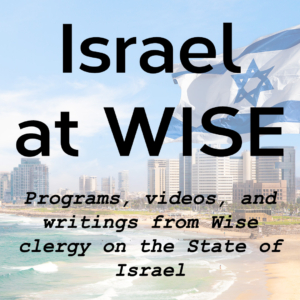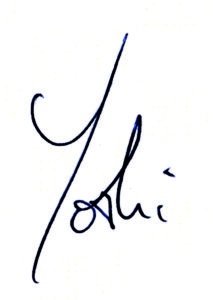What a challenging week for Israel and the Jewish people.
On Monday, the Israeli government passed a controversial bill that many critics consider one step in a broader strategy aimed at undermining Israeli democracy. Even those who believe that reform of the Israeli court system is necessary would agree that the government has badly botched its efforts in terms of process. Evidence of broad dissatisfaction with the current government can be seen in the images of the hundreds of thousands of Israelis who have taken to the streets over the past five months.
Immediately after the passage of the bill, protests erupted all over the country, demonstrations that included religious and secular Israelis from across the entire political spectrum.
As if by design, yesterday marked the darkest day on the Jewish calendar: Tisha B’Av. It is the day on which, according to tradition, a long litany of tragedies has befallen our people, including the destruction of both the First and Second Temples.
 This week’s Torah portion and its accompanying reading from the Prophets provide hope. The parasha begins with a word of comfort: va’etchanan—Moses asks God to be gracious and merciful to our ancestors. And then the opening words of our haftarah portion from the prophet Isaiah give our Shabbat a special name: Shabbat Nachamu, the Sabbath of Consolation. “Comfort, O comfort my people says the Eternal!” (Is. 40:1) the prophet imagines God calling him to try to console Israel in the wake of the terrible destruction of the Temple.
This week’s Torah portion and its accompanying reading from the Prophets provide hope. The parasha begins with a word of comfort: va’etchanan—Moses asks God to be gracious and merciful to our ancestors. And then the opening words of our haftarah portion from the prophet Isaiah give our Shabbat a special name: Shabbat Nachamu, the Sabbath of Consolation. “Comfort, O comfort my people says the Eternal!” (Is. 40:1) the prophet imagines God calling him to try to console Israel in the wake of the terrible destruction of the Temple.
The past few months have been devastating, as we have witnessed how internal divisions are tearing apart the very fabric of Israeli society. Commentators, political analysts, and pundits are talking about the horrifying possibility of civil war. The Israeli economy has already taken a hit and there are worries that worse is yet to come. Some are even discussing the possibility of Israel becoming another Middle Eastern theocracy rather than the “start-up nation” that has filled us with pride and made tiny, resource-starved Israel the envy of the developing world.
What makes this moment all the more difficult for me is the 10,000-mile, 10-hour divide. Having lived in Israel for five years and spent so much time there over frequent visits, missions, and tours, what’s happening now feels so far away and yet so close and personal at the same time. I reach out to friends, devour the news, discuss with colleagues, write opinion pieces, and share my thoughts with you.
There are moments of exhaustion, too—certainly not like that which is felt by our Israeli friends and family, but rather a sense of terrible frustration that this particular wound is entirely self-inflicted. Petty politics, self-interest, religious-nationalism, and messianic fervor have combined in a most toxic way to threaten Israel as never before.
Despite the frustration and even alienation we might feel, now is not the time to disengage. And now is not the time to despair. We can find comfort in moments like this in our tradition and in each other—through community. We can find comfort as well in the knowledge that previous generations of Jews, somehow, found the strength to hold on to hope, even in the midst of the darkest night.
One thing that gives me hope is the incredible resilience of our people. We have navigated far more difficult situations. We have been fractured as a people time and time again, and yet somehow manage to maintain—deep down in the very core of who we are as Jews—a sense of unity and connection that refuses to be vanquished. We have faced challenge after challenge throughout the millennia and refused to give into despair.
Ultimately, it’s not enough to imagine God sending leaders like Moses or Isaiah to comfort us. We provide the comfort by refusing to despair, by working tirelessly for the realization of the dream—the hope—that we will be a free people in our own land: a Jewish, democratic state of Israel.
Shabbat Shalom,

—Rabbi Yoshi
Looking to support the commitment to Israel’s democracy? Consider these organizations:
